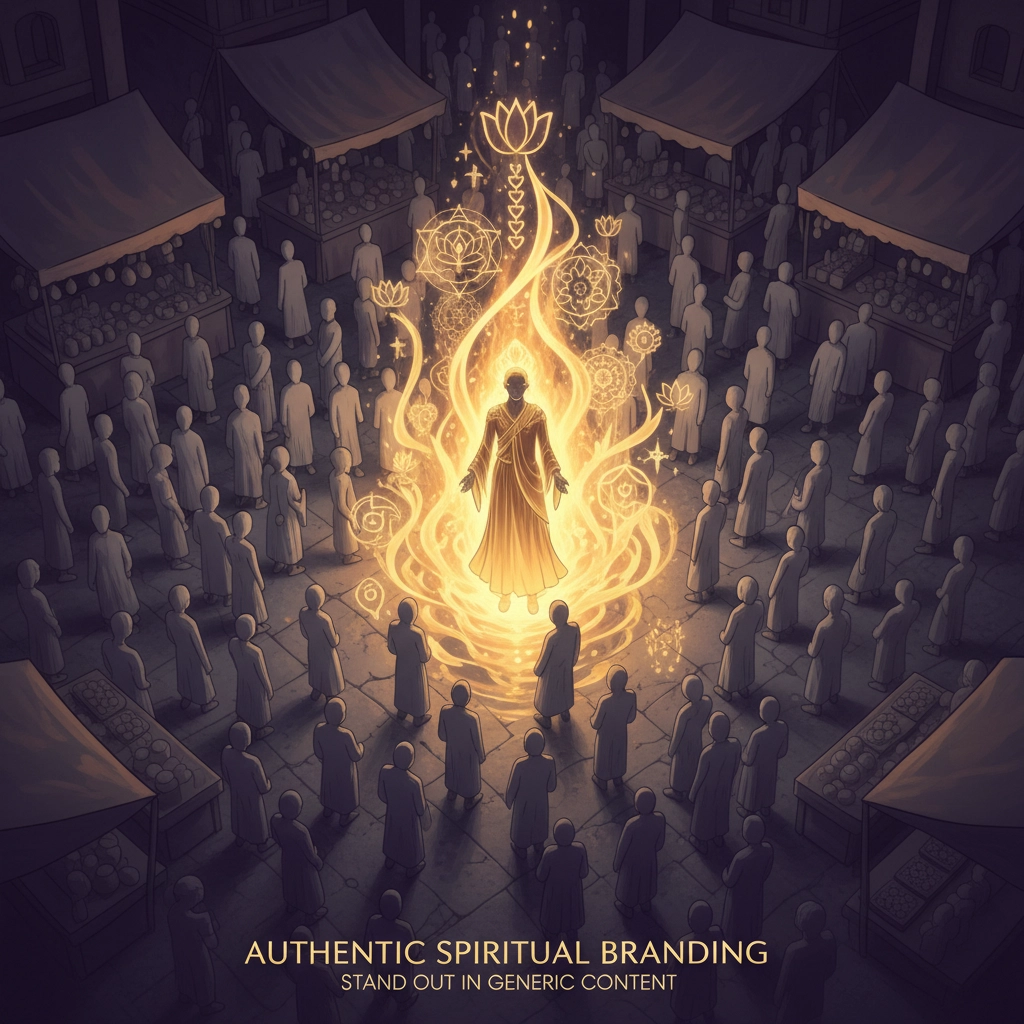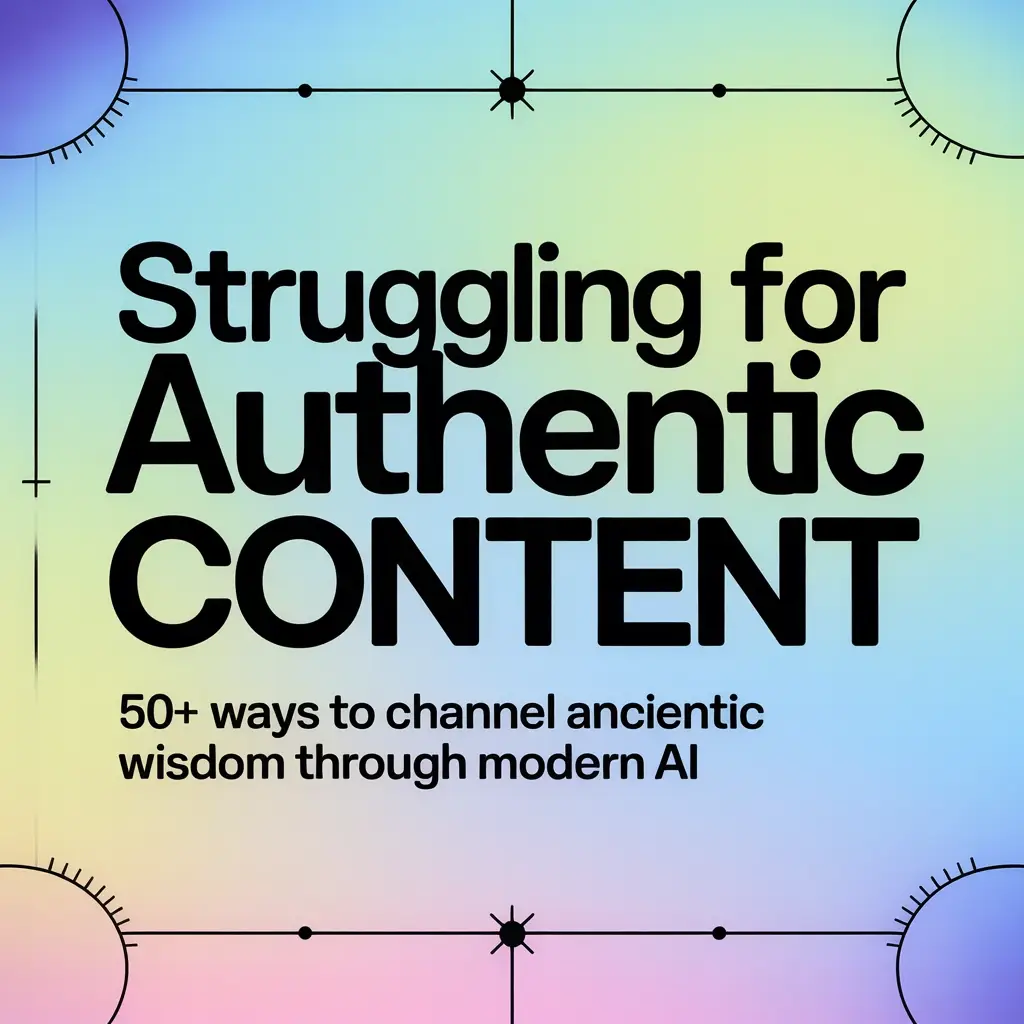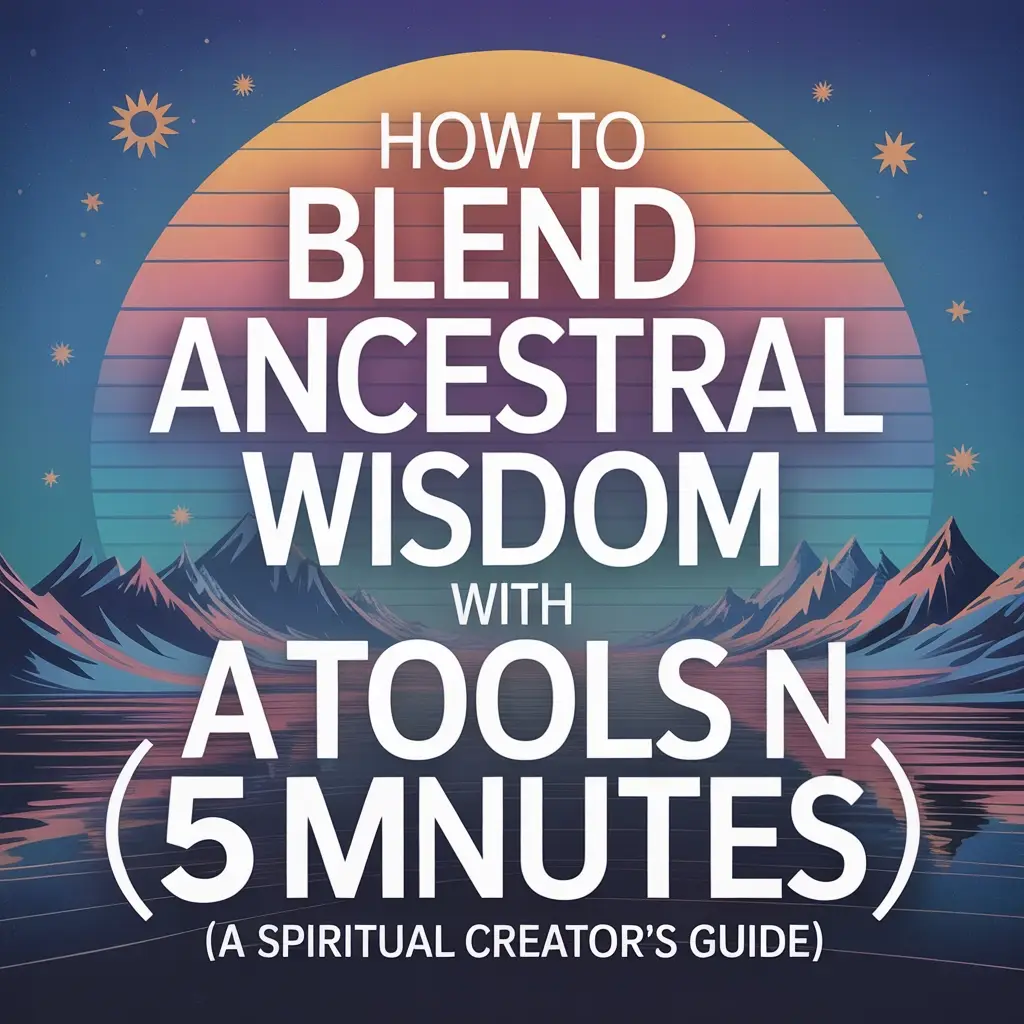Personal branding mistakes can damage trust and credibility for spiritual creators. These seven common errors prevent authentic connection with your audience and limit growth opportunities.
Mistake 1: Building Your Brand Before Understanding Your Authentic Self
Many spiritual creators begin branding efforts without complete self-awareness. This approach creates inconsistency between your message and your actual beliefs or practices.
Your audience seeks genuine spiritual guidance. When your brand reflects uncertainty about your own path, trust diminishes rapidly. Spiritual communities detect inauthenticity more readily than other audiences.
Take time to clarify your spiritual philosophy, core practices, and personal transformation experiences. Document your beliefs, values, and the specific wisdom you offer. This foundation prevents brand confusion later.

Consider these questions: What spiritual practices have genuinely transformed your life? Which teachings resonate most deeply with your experience? What unique perspective do you bring to spiritual development?
Your brand should reflect your current spiritual state, not aspirational goals or borrowed philosophies from other teachers.
Mistake 2: Attempting to Appeal to Everyone
Broad targeting weakens your message and reduces engagement. Spiritual creators often fear excluding potential followers by defining specific audiences.
Generic spiritual content gets lost among thousands of similar posts. Your message needs focus to stand out and create meaningful connections.
Define your ideal spiritual seeker. Consider their current challenges, spiritual background, and desired transformation. Are they beginners exploring spirituality? Experienced practitioners seeking advanced guidance? People integrating spiritual practices into busy lives?
Specific targeting allows deeper content creation. You can address precise concerns, use appropriate terminology, and offer relevant solutions. This approach builds stronger community bonds than generic messaging.
Document your target audience characteristics. Reference this information when creating content to maintain consistent focus.
Mistake 3: Copying Other Spiritual Teachers' Brand Approaches
Many creators imitate successful spiritual teachers without considering their unique offerings. This strategy creates confusion and reduces authenticity.
Your spiritual journey differs from other teachers. Your background, experiences, and insights provide unique value that generic copying cannot replicate.
Observe successful spiritual brands for inspiration, not duplication. Note their communication patterns, content organization, and community engagement methods. Adapt these strategies to fit your authentic message.

Develop your distinctive voice by examining your personal spiritual transformation. What challenges did you overcome? Which practices proved most effective? How do you explain complex spiritual concepts?
Your brand should amplify your genuine spiritual perspective, not mask it with borrowed approaches.
Mistake 4: Sharing Only Curated Content Without Personal Insights
Posting inspirational quotes or reposting others' content without commentary limits brand development. Your audience needs your perspective, not recycled wisdom.
Spiritual creators build authority through original insights and personal interpretations of spiritual principles. Commentary demonstrates your understanding and teaching ability.
When sharing external content, add substantial personal analysis. Explain why the material resonates with your teachings. Describe how you apply these concepts in your practice or recommend them to others.
Create original content regularly. Share meditation experiences, spiritual book reviews, or personal growth observations. These posts showcase your expertise and build thought leadership.
Balance curated and original content. Perhaps try a 70-30 ratio favoring original material. This approach maintains community value while establishing your unique voice.
Mistake 5: Broadcasting Without Community Engagement
One-way communication prevents relationship building with your spiritual community. Posting content without responding to comments or questions reduces trust and connection.
Spiritual seekers value dialogue with teachers and guides. They need to ask questions, share experiences, and receive personalized feedback. Broadcasting eliminates these essential interactions.
Respond to comments thoughtfully. Answer questions thoroughly. Share relevant personal experiences when appropriate. These interactions demonstrate your commitment to your community's spiritual growth.

Engage with your followers' content as well. Comment meaningfully on their posts. Ask questions about their spiritual practices. This reciprocal engagement strengthens community bonds.
Schedule regular time for community interaction. Perhaps dedicate 30 minutes daily to responding to messages and comments. Consistent engagement builds stronger relationships than sporadic responses.
Mistake 6: Expecting Immediate Recognition as a Spiritual Authority
Building authentic spiritual authority requires time and consistent value delivery. Many creators expect quick recognition and become discouraged by slow initial growth.
Spiritual authority develops through demonstrated wisdom, consistent teaching, and positive impact on others' spiritual lives. These achievements cannot be rushed through marketing tactics alone.
Focus on serving your current community exceptionally well. Provide thorough answers to questions. Offer detailed guidance for spiritual challenges. Create comprehensive resources for common spiritual concerns.
Document testimonials and success stories from your spiritual guidance. These authentic endorsements build credibility more effectively than self-promotion.
Maintain patience with your growth timeline. Perhaps set process goals instead of outcome goals. For example, commit to posting valuable content weekly or responding to all community questions within 24 hours.
Quality spiritual guidance builds reputation gradually but creates lasting impact and sustainable growth.
Mistake 7: Focusing Only on Visual Aesthetics Instead of Deep Brand Identity
Many spiritual creators emphasize logos, color schemes, and visual design while neglecting their spiritual philosophy and teaching approach. This imbalance creates shallow branding without substance.
Your spiritual brand identity encompasses your mission, values, belief system, teaching methodology, and the specific transformation you facilitate for others. Visual elements should support these deeper aspects.
Define your spiritual mission clearly. What specific change do you create in people's lives? How do your teachings differ from other approaches? What outcomes do your students typically achieve?
Document your core spiritual values and how they influence your teaching. Perhaps you emphasize practical application over theoretical knowledge, or focus on integrating ancient wisdom with modern life challenges.

Clarify your unique spiritual perspective. Maybe you combine Eastern meditation practices with Western psychology, or integrate shamanic techniques with contemporary healing methods. This distinctiveness attracts aligned community members.
Your visual brand should reflect these deeper elements. Choose colors, imagery, and design styles that support your spiritual message and resonate with your target audience.
Moving Forward
Personal branding for spiritual creators requires balancing authentic self-expression with strategic communication. These seven mistakes prevent many creators from building effective spiritual brands.
Regular self-assessment prevents these errors from developing. Perhaps review your brand quarterly to ensure continued alignment between your spiritual growth and public message.
Consider documenting your brand guidelines including your spiritual philosophy, target audience characteristics, and communication approach. This reference maintains consistency as your spiritual teaching evolves.
Your spiritual brand should evolve alongside your personal development while maintaining core authenticity and community trust.



